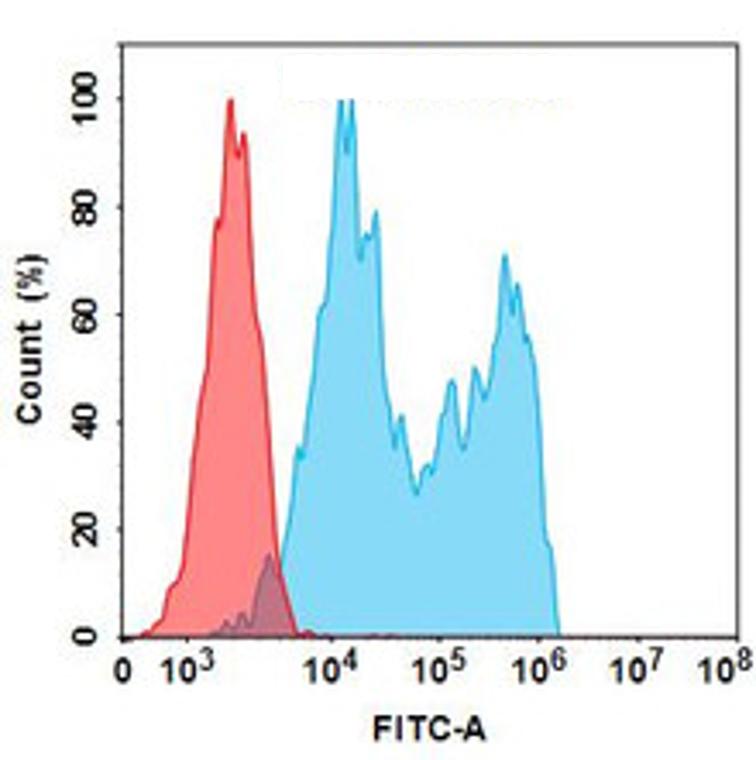Obinutuzumab: Advancing Targeted Therapy in Hematologic Cancers
Quick Facts About Obinutuzumab
What is Obinutuzumab?
What is the mechanism of action for Obinutuzumab?
Obinutuzumab works by binding to CD20 on B-cells, inducing direct cell death and enhancing antibody-dependent cellular cytotoxicity (ADCC) and phagocytosis.
What are the clinical applications of Obinutuzumab?
It is approved for CLL and follicular lymphoma, often in combination with other therapies such as venetoclax or bendamustine.
1.) Understanding Obinutuzumab
Obinutuzumab, a next-generation glycoengineered monoclonal antibody, represents a significant advancement in CD20-targeted therapies, offering improved efficacy over first-generation agents like rituximab. Developed using advanced glycoengineering techniques, obinutuzumab is designed to enhance antibody-dependent cellular cytotoxicity (ADCC) and antibody-dependent cellular phagocytosis (ADCP) while simultaneously reducing complement-dependent cytotoxicity (CDC). These modifications result in stronger immune-mediated responses against malignant B cells, leading to improved depletion of tumor cells.
One of the major advantages of obinutuzumab is its ability to overcome B-cell resistance, a limitation observed with rituximab and other earlier CD20-targeting therapies. By inducing direct programmed cell death and engaging immune effector cells more effectively, obinutuzumab provides a more robust response, even in patients who have relapsed or are refractory to prior treatments.
Clinically, obinutuzumab has demonstrated superior efficacy in treating hematologic malignancies, particularly chronic lymphocytic leukemia (CLL) and follicular lymphoma (FL). In combination with chemotherapy or targeted agents, it has shown improved progression-free survival rates compared to rituximab-based regimens. Additionally, its favorable safety profile and predictable pharmacokinetics make it a valuable option in modern oncology, particularly for patients who require novel therapeutic approaches due to disease progression or treatment resistance.
2.) Mechanism of Action of Obinutuzumab
Obinutuzumab is a glycoengineered type II monoclonal antibody that specifically binds to the CD20 antigen, a transmembrane protein expressed on the surface of B cells. This targeted binding triggers multiple mechanisms that contribute to its enhanced anti-tumor efficacy compared to first-generation CD20 antibodies like rituximab. One key distinction is its ability to induce stronger antibody-dependent cellular cytotoxicity (ADCC) and antibody-dependent cellular phagocytosis (ADCP).
Through glycoengineering, obinutuzumab has an afucosylated Fc region, which enhances its affinity for FcγRIIIa receptors on immune effector cells such as natural killer (NK) cells and macrophages. This results in more efficient recruitment and activation of these cells, leading to superior B-cell depletion.
Another crucial aspect of obinutuzumab's mechanism is its ability to induce direct programmed cell death (PCD) independently of immune effector cells. Unlike rituximab, which primarily relies on complement-dependent cytotoxicity (CDC), obinutuzumab exhibits a higher propensity for PCD, making it effective even in cases where complement activation is suboptimal or ineffective. This dual mechanism of enhanced ADCC and PCD contributes to its efficacy in both treatment-naïve and relapsed/refractory patients with chronic lymphocytic leukemia (CLL) and follicular lymphoma (FL), positioning it as a preferred therapeutic option in these malignancies.
3.) Clinical Applications of Obinutuzumab
Obinutuzumab has emerged as a crucial therapeutic agent in the treatment of B-cell malignancies, particularly chronic lymphocytic leukemia (CLL) and follicular lymphoma (FL). Its improved efficacy over rituximab-based regimens has positioned it as a preferred option in multiple clinical settings.
In Chronic Lymphocytic Leukemia (CLL), obinutuzumab is frequently used in combination with targeted therapies such as venetoclax or chlorambucil. Clinical trials have demonstrated that obinutuzumab-based regimens significantly improve progression-free survival (PFS) and overall response rates compared to rituximab. The combination with venetoclax, a BCL-2 inhibitor, is particularly effective in achieving deep and durable remissions, even in high-risk CLL patients with TP53 mutations or unmutated IGHV status.
For Follicular Lymphoma (FL), obinutuzumab in combination with bendamustine has shown superior efficacy in patients with relapsed or refractory disease. Studies indicate that this regimen extends PFS and enhances complete response rates compared to rituximab-based approaches. Additionally, obinutuzumab maintenance therapy has been shown to prolong remission in FL patients following induction therapy.
Beyond hematologic malignancies, emerging research is evaluating obinutuzumab’s potential in autoimmune diseases, including lupus nephritis. It is also being investigated in combination with Bruton's tyrosine kinase (BTK) inhibitors like acalabrutinib, offering promising therapeutic avenues for resistant or high-risk B-cell malignancies.
4.) Exploring Biosimilars for Obinutuzumab
What is a Biosimilar?
A biosimilar is a biologic product highly similar to an approved reference biologic, offering a cost-effective alternative while maintaining efficacy and safety.

| Obinutuzumab (Anti-CD20) Biosimilar Antibody | |
|---|---|
| Antibody Type: | Monoclonal Antibody |
| Protein: | CD20 |
| Reactivity: | Human |
Comparison: Obinutuzumab vs. Biosimilar
Biosimilars of Obinutuzumab aim to replicate its CD20-targeting properties while ensuring similar clinical outcomes. They undergo rigorous testing to confirm equivalence in pharmacokinetics, safety, and efficacy.
Benefits of Biosimilars for Research
Research Use Only Disclaimer:
Biosimilars for Obinutuzumab are intended for investigational purposes and not for direct clinical application.
Discover Our Biosimilar Range
At Assay Genie, we specialize in providing high-quality biosimilars for research use! Check out our full biosimilar range to learn more.

By Marina Alberto, PhD
Marina Alberto, PhD, holds a robust academic background in Biotechnology, earning her Bachelor’s Degree and PhD in Science and Technology from Quilmes National University. Her research spans cancer immunotherapy, glycan profiling, and vaccine development, including innovative projects on pediatric leukemia diagnosis and cancer-associated carbohydrate-mimetic vaccines. She currently serves as a Technical Support and Sales Specialist at Assay Genie.
Recent Posts
-
Metabolic Exhaustion: How Mitochondrial Dysfunction Sabotages CAR-T Cell Therapy in Solid Tumors
Imagine engineering a patient's own immune cells into precision-guided missiles against cancer—cells …8th Dec 2025 -
The Powerhouse of Immunity: How Mitochondrial Fitness Fuels the Fight Against Cancer
Why do powerful cancer immunotherapies work wonders for some patients but fail for others? The answe …5th Dec 2025 -
How Cancer Cells Hijack Immune Defenses Through Mitochondrial Transfer
Imagine a battlefield where the enemy doesn't just hide from soldiers—it actively sabotages their we …5th Dec 2025



